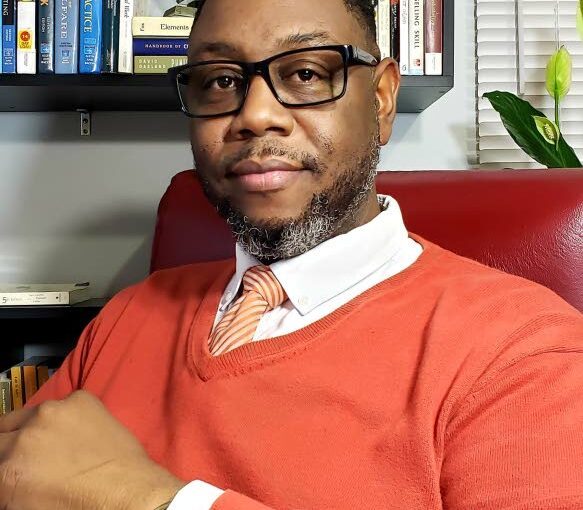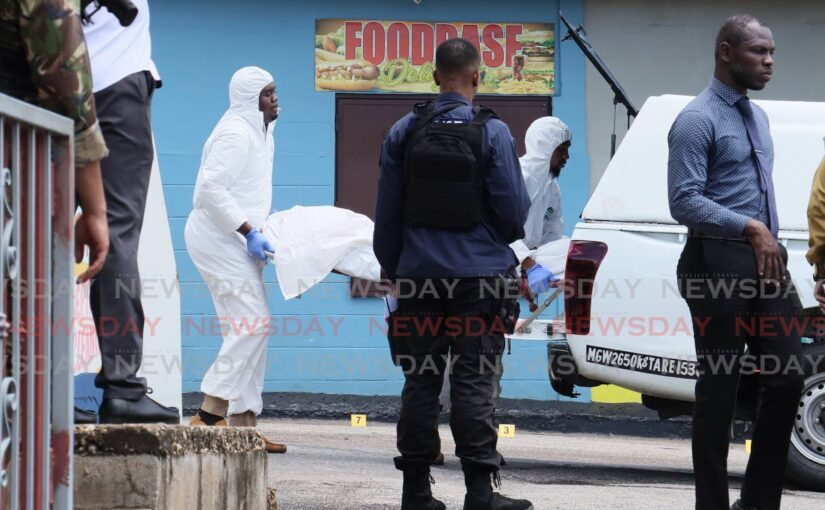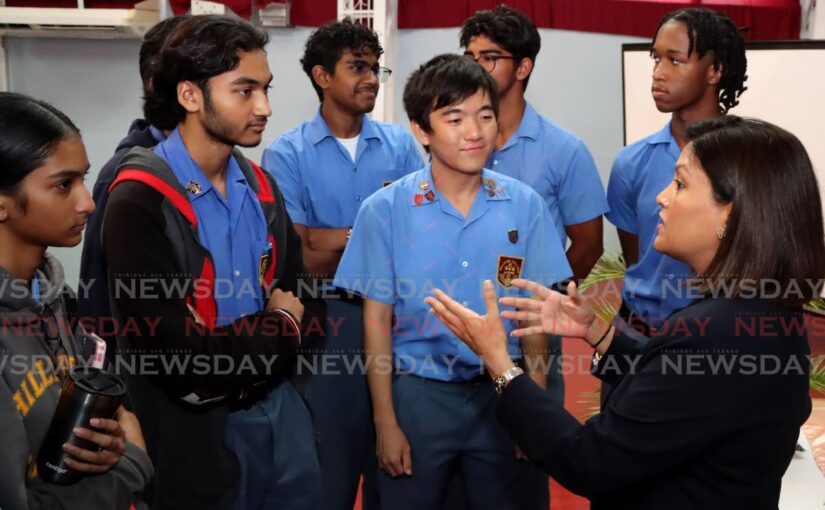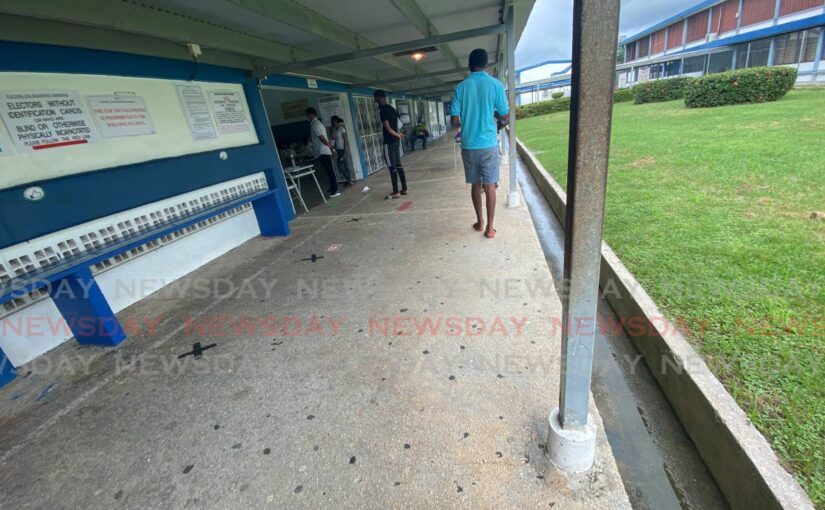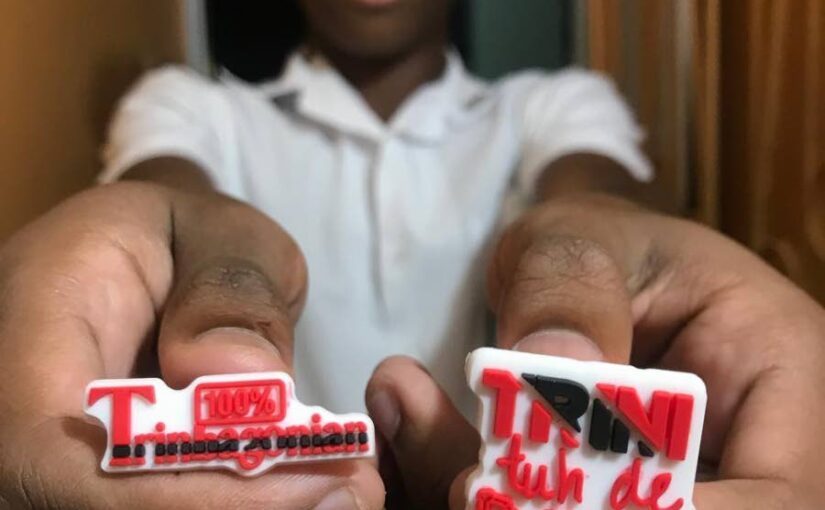“The undisciplined are slaves to moods, appetites and passions” – Stephen Covey ALL SOCIETAL institutions, both formal and informal, are...
Vous n'êtes pas connecté
- English
- Français
- عربي
- Español
- Deutsch
- Português
- русский язык
- Català
- Italiano
- Nederlands, Vlaams
- Norsk
- فارسی
- বাংলা
- اردو
- Azərbaycan dili
- Bahasa Indonesia
- Հայերեն
- Ελληνικά
- Bosanski jezik
- українська мова
- Íslenska
- Türkmen, Түркмен
- Türkçe
- Shqip
- Eesti keel
- magyar
- Қазақ тілі
- Kalaallisut ; kalaallit oqaasii
- Lietuvių kalba
- Latviešu valoda
- македонски јазик
- Монгол
- Bahasa Melayu ; بهاس ملايو
- ဗမာစာ
- Slovenščina
- тоҷикӣ ; toğikī ; تاجیکی
- ไทย
- O'zbek ; Ўзбек ; أۇزبېك
- Tiếng Việt
- ភាសាខ្មែរ
- རྫོང་ཁ
- Soomaaliga ; af Soomaali
Rubriques :
 Maroc - NEWSDAY.CO.TT - A la Une - 08/Sep 08:23
Maroc - NEWSDAY.CO.TT - A la Une - 08/Sep 08:23
Hanif Benjamin: Poverty driving teens to crime
CLINICAL traumatologist and president of the Centre for Human Development Ltd Hanif Benjamin says poverty is the main driving force behind teens' involvement in crime, calling it the greatest trauma. In an interview with Newsday on September 7, Benjamin, former head of the Children's Authority, responded to comments made by the Commissioner of Police Erla Harewood-Christopher, warning parents the police would be holding them accountable for their children's activities, as she spoke on the increasing involvement of teenagers in crime. Harewood-Christopher was speaking at a media briefing on September 6 at the Ministry of National Security, Abercromby Street, along with the Minister of National Security Fitzgerald Hinds and other senior officers in the police service on the worsening crime situation. Benjamin said the family is critical in combating young people's involvement in criminal activities, which are closely linked to societal issues. “Children who are dealing with poverty have no supervision and families are dealing with financial hardship. Those are the children you would find susceptible to the criminal element.” He stressed criminal gangs are recruiting day and night and the challenge is a lack of resources to mitigate this. “Young people are already dealing with other challenges: it becomes very easy for them to fall prey to the criminal gang because society is telling them they need to get rich faster. Their role models are driving nice cars, wearing gold chains and glorifying a fast lifestyle.” He said fixing or dealing with crime is not only about gun and police/soldier manpower but a closer examination of socio-economic factors. Benjamin questioned if the reason young people in crime are not reported by their families is because they provide financial help in the home. “In the past, we have had children being sexually abused, and reports are not being made because the family is gaining from that. Is this the same scenario with gangs and crime?” He believes there are not enough school-based mental health programmes, saying, “While we have the school support services, it is woefully lacking in its depth and its reach.“ He said mental health and learning challenges need to be addressed in the school system, but they are not being addressed cohesively. “There is a backlog of cases in schools that need to be assessed for medication, which is very expensive. We are not treating mental health good as a country. Therapy and rehabilitation are important. We need to adopt a restorative style, mediation, at how to rehabilitate young people.” Benjamin says the country must take a different approach if young people are to come out on the other side and regain a sense of stability in society. He believes young people who have fallen into crime can be helped and contribute positively to society if systems are put in place to re-engage their minds. Benjamin advised parents whose children are going down a road of crime and criminality to question what is happening in the home, urging them to think holistically. “Our school system has a role to play in relation to after-school activities, keeping our young people busy, keeping their minds refocused and fostering ingenuity and innovation. Young people are bored: they need their cognitive palette positively challenged.” He called on communities to support parents. He believes that positive push and support can pull children away from criminal elements. “If we are not helping, we are just leaving children to their own devices. Some parents have to work later to make ends meet, and there is no real supervision. The community needs to step in. We have moved away from the village raising the child, criminals know this and have stepped in.” He urged parents to get involved in their children's interests and in situations where there are none, help them find healthy interests. “Get them away from the computer and the phone: get them involved in community activities.” Benjamin called for more community activities in community centres. “We need to get back to a place where we are actively engaging our young people.” He again stressed the importance of a healthy and positive stimulation environment, saying it will determine the direction of young people. “What are those factors pushing young people towards criminality? Who are their role models? What are they learning from them?” Benjamin also outlined untreated childhood trauma, saying it plays a crucial role in the push towards crime. “Childhood trauma is linked very closely with environmental factors. Events that occurred in childhood that propel young people towards a particular type of life? Poverty, sexual or physical abuse, learning disabilities, lack of opportunities to learn? We need to examine those questions." He said answering those questions is critical to the conversation and achieving long-term goals. At the media briefing, Hinds, in response to a question, said parents can be held accountable for their children's offences under the package of children's legislation. Hinds highlighted a video of three male pupils in a secondary school gambling in a classroom while a teacher was trying to teach, which had gone viral on social media. He said all government ministries were working for young people, but in addition, parental accountability for youngsters was critical. Snr Supt Rishi Singh, who chimed in on the conversation, said under the Children Act, parental responsibility for errant children has been "a national cry." Minister in the Ministry of National Security Keith Scotland said the Anti-Gang Act puts an onus on parents to report such matters. “The Education Act mandates that children of a certain age must be in school.” He also referred to the common-law offence of aiding and abetting a crime if parents facilitated their children's actions. Scotland said the entire country needed to help arrest the current situation and the laws are already in place, it just needs to be acted upon. The post Hanif Benjamin: Poverty driving teens to crime appeared first on Trinidad and Tobago Newsday.
Articles similaires
Fear of crime cripples movement of people
A DAILY STREAM of reports, images and videos of crime often shared on various social media platforms is affecting the way of life of people in...
Crime’s chilling impact
JUST WHEN it seems there is little more to be said about crime, we are forced to confront yet another aspect of its chilling impact on our...
Zelenskyy explains why war cannot end with mere silence on front lines
The uncertain future of the children abducted by Russia from the temporarily occupied territories of Ukraine is one of the many reasons why this war...
Adultism
Adultism refers to the oppression of young people by adults. The popular saying “children should be seen and not heard” is used as a way to...
Snap school poll: Youth want to leave Trinidad and Tobago
IN a school hall filled with 200 pupils, about half of them indicated they wished to leave Trinidad and Tobago to study, and of these only one said...
More trouble at Cedros Secondary School
AFTER a video surfaced on WhatsApp showing two parents fighting outside Cedros Secondary School, a source close to the school tells Newsday there are...
School violence – a TTUTA perspective
THE ISSUE of school violence has been with us for a long time. Even as we try to grapple once again with this issue, TTUTA as its contribution to...
Trump's violent gaffe-filled speech involves Harris — and a machete
Former President Donald Trump on Friday expressed his appreciation for the physical beauty of young girls who had been knifed to death, slammed...
Jazzing up Crocs with jibbitz
SEVENTEEN-YEAR-OLD Jaeden Bobb aspires to become an international footballer while passionately showcasing the rich culture of TT. Currently, he...
Les derniers communiqués
-
Aucun élément
